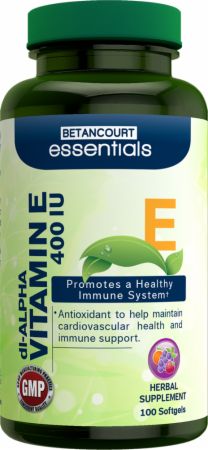Daily habits play a huge role in the strength and health of your heart. High stress, poor eating and sleeping habits, as well as butt-in-chair syndrome—among other lifestyle factors—can jeopardize your cardiac health. According to the CDC, heart disease kills more Americans than any other disease each year.1 That's a scary slab of data.
A growing body of evidence suggests that small lifestyle changes can strengthen the ol' ticker, reducing your risk of cardiac-related health issues. February is American Heart Month, so let's have a little heart-to-heart about your heart. Here are 10 easy ways you can improve your heart health today.
Learn Your Numbers
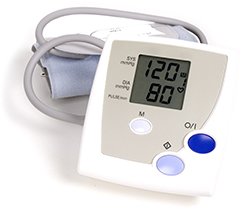
According the Group Health Research Foundation, healthy men and women should have their cholesterol checked every five years and their blood pressure checked every two years.2 Men should begin these wellness visits at age 35 and women at 45.
Better yet, purchase a home blood-pressure monitoring unit and develop the habit of checking your own readings. You'll see problems arising early. Adult blood pressure is considered normal at 120/80.
Another smart prevention strategy is to get a physical with full blood work in your twenties to help determine if you have any risk factors. Ask your parents about your family history as well. Your risk of heart disease and stroke greatly increase if a parent has suffered from either before age 55.
Stress Less
Stress can stem from many aspects of life. Work, finances, relationships, hardships, and morning traffic can be tough on your body and mind. Living in a constant state of stress puts you at greater risk of a heart attack and other heart-related issues. According to Harvard Health Publication, studies suggest that people who experience workplace stress increase their risk of a heart attack by 40 percent when compared to less-stressed coworkers.3 If you're one of the stress-pots in your office, try improving your time-management skills, practice deep breathing and meditation, take a little time for yourself, or openly express your concerns. Any of these small techniques can be great ways to keep stress at bay.
Eat Better
Small changes in your dietary habits can greatly impact your heart health. Eating foods that contain monounsaturated and polyunsaturated fats, and omega-3 fatty acids like nuts and salmon may help lower bad cholesterol. Other nutrients, like vitamin E, L-arginine, B complexes, and vitamin A, may protect the health of your artery walls and support overall heart health.
Adding variety to your diet is another easy way to ensure you receive ample nutrients that protect your heart. Blueberries, oatmeal, beans, eggs, tuna, and brown rice are some suggested staples to bring to your kitchen.
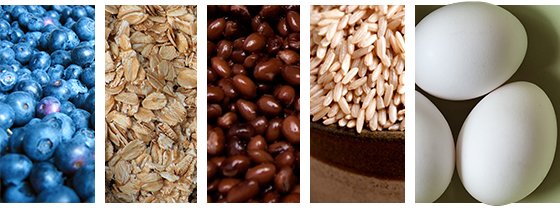
Water It Down
Staying hydrated prevents your heart from working overtime. According to The American Heart Association, water helps your heart pump blood through your blood vessels and your muscles to remove waste so both can function more efficiently.5 No single formula covers everyone, but you should always be drinking a minimum of eight 8-ounce glasses of fluid every day.
The harder and longer you train, the more you need to drink. Your climate, exercise intensity, degree of perspiration, and apparel all play a huge role in how much water you lose during physical activity. Thirst is always a good indicator that you need to drink up, but drink fluids preemptively. Sipping water throughout the day will help keep you hydrated and prevent dehydration during strenuous activity.
Pump Some Iron
Often conversations about cardiovascular exercise begin and end with aerobic training like running. Despite the popularity of treadmill cardio, studies show that weight training has positive effects on heart health.

Researchers suggest that resistance training affects your cardiovascular system differently than aerobic exercise, so a workout that includes both is a winning combination.6 Training with weights increases blood flow to the limbs and has positive effects on blood pressure. It also helps shift your body composition from fat to muscle, which, in the long term, is good for heart health too.
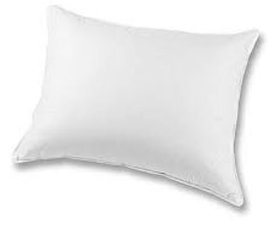
Hit The Hay
Chronic sleep deprivation can lead to a multitude of health issues, including well-known contributors to heart disease like high blood pressure, high cholesterol, and impaired glucose tolerance.7 If counting sheep just doesn't cut it for you, optimize your waking hours by implementing some of the other tips in this article. In general, the more active you are during the day, the easier it will be for you to sleep at night.
In addition to being more active, set up your sleeping environment to promote deeper sleep. Remove all artificial light like computers, glowing alarm clocks and televisions. You can also install blackout curtains to keep external light sources out or download some relaxation sounds for extra sleep aids.
Measure Up
Fat distribution tells you a great deal about your health. Women typically store fat in their hips and thighs while men tend to carry fat in their belly Your waist-to-hip ratio (WHR) provides great insight to your risk of type 2 diabetes, stroke, and heart disease.
A report in the European Journal of Clinical Nutrition suggests using waist-to-hip measurements to help determine whether you are at risk of heart-related disease.8
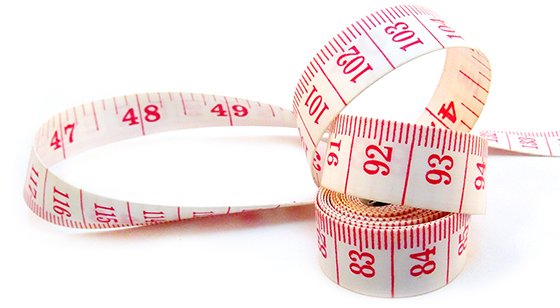
To calculate your waist-to-hip ratio, measure your waist at its narrowest part (usually around the navel) and your hips at the widest part (around the glutes). Write both numbers down, and then divide your waist circumference by your hip circumference. Women with a measurement of 0.8 or less and men with a measurement of 0.9 or less are considered lower risk.
Have Sex
Sex can increase your heart rate and blood pressure as much as climbing a flight of stairs would. One study suggests that men who orgasm three or more times per week reduce the risk of heart attack by as much as 50 percent—which may be caused by the release of the hormone DHEA.9 At the risk of stating the obvious, sex also releases beneficial hormones that reduce stress, cause relaxation, and improve sleep.
Stand Up
Studies have long focused on exercise for improved heart health, but more recent research peered into how inactivity can affect your heart health. A researcher at The Ohio State Wexner Medical Center suggests that sitting can cause a dramatic decrease in lipoprotein lipase, which is an enzyme responsible for turning bad cholesterol into good cholesterol.10
If you are prone to sitting for long periods of time, take opportunities during phone calls, at lunchtime, or breaks to get up and walk around.
Brush And Floss
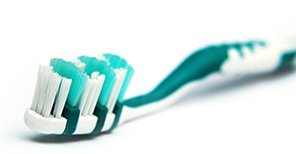
A healthy mouth directly may relate to the health of your heart. Columbia University conducted a study with 420 volunteers to determine a correlation between gum tissue health and heart disease. Researchers found that people who brush their teeth twice per day for two minutes reduced their risk of stroke or other heart-related illness.11 Other preventative measures include regular dental exams and cleanings, as well as daily flossing.
Though the link between heart health and gum health is compelling, the cause-and-effect remains uncertain. Research shows that certain gum disease-causing bacteria have also been found in atherosclerotic plaque that builds up in heart arteries, which can lead to heart attack. Think of it this way: If the tissues you see in the mirror when you smile look inflamed, the rest of you body probably isn't the picture of health, either.
REFERENCES
- http://www.cdc.gov/features/heartmonth/
- http://www.ghc.org/healthAndWellness/index.jhtml?item=/common/healthAndWellness/tests/recommendedTests/adultTests.html
- http://www.health.harvard.edu/healthbeat/reduce-your-stress-to-protect-your-heart
- http://www.drsinatra.com/resources/drsinatra/images/content/Sin-NS-Issues/September-2011-Issue.pdf
- http://www.ncbi.nlm.nih.gov/pmc/articles/PMC2908954/
- http://umm.edu/health/medical/reports/articles/exercise
- http://www.journalsleep.org/articles/290803.pdf
- http://ajcn.nutrition.org/content/74/3/315.abstract
- http://www.bmj.com/content/315/7123/1641
- http://medicalcenter.osu.edu/mediaroom/releases/Pages/It-Stands-to-Reason----Sitting-Less-Can-Improve-Health,-Extend-Life.aspx
- http://www.bmj.com/content/340/bmj.c2451


